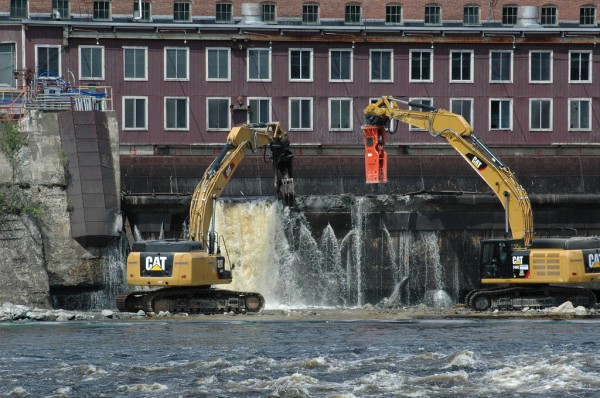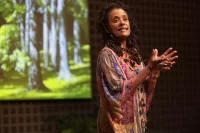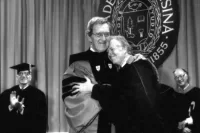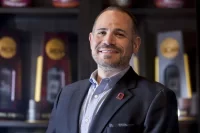
Law professor, conservationist to discuss Penobscot River restoration

The breaching of the Veazie Dam on the Penobscot River in July 2013. Photograph copyright © 2013 by the Penobscot Trust.
University of Maine Professor of Law David Owens and conservationist Colin Apse discuss freshwater sustainability measures, environmental law and the Penobscot River Restoration Project at 4:15 p.m. Monday, Nov. 11, in Room 106 of Hedge Hall, 7 Andrews Road (Alumni Walk).
The lecture is titled Trading Dams: The Penobscot River Restoration Project and the Future of Hydropower Policy and Law. Admission is free of charge and open to the public. For more information, please call 207-786-8296.
Following their talk, Apse and Owens will host a question-and-answer session on law school opportunities for interested students and community members.
The Penobscot River Restoration Project is one of the largest, most creative river restoration projects in U.S. history. In an unprecedented collaboration, hydropower company PPL Corporation, the Penobscot Indian Nation, six conservation groups, and a variety of state and federal agencies are working together to restore 11 species of sea-run fish to the Penobscot River, while maintaining energy production.
The effort entails including the purchase and removal of the two lowermost dams on the Penobscot River, Veazie and Great Works, and purchase and decommissioning of a third dam, Howland Dam, where a fish bypass is planned. Successful implementation of the project will revive not only native fisheries but social, cultural and economic traditions of New England’s second largest river.
Owens is a professor of law and the associate dean for research for the University of Maine School of Law. His research interests span a wide range of environmental law topics, including dam removal, hydropower management, the Endangered Species Act implementation, groundwater regulations and legal responses to the water quality impacts of urbanization.
Apse is the senior freshwater conservation advisor for The Nature Conservancy’s Africa, Great Rivers and Eastern U.S. Freshwater Programs. He has worked at the Conservancy for more than a decade, managing freshwater ecosystem conservation and sustainable water management solutions.
According to Apse, a core environmental challenge for the 21st century is managing the world’s scarce freshwater resources. The difficulty lies in meeting the rapidly growing human needs for fresh water while not sacrificing the biodiversity and critical ecosystem services that lakes and rivers offer to the world.
In the United States, his work deals with developing strategies to approach finding a balance in human water use and environmental water needs. He has served on committees for sustainable water reform in five different state groups addressing river basins. Most recently, Apse worked with a 13-state collaborative looking at a way to prioritize opportunities for dam removal or mitigation based on the ecological benefits that would result from it.




